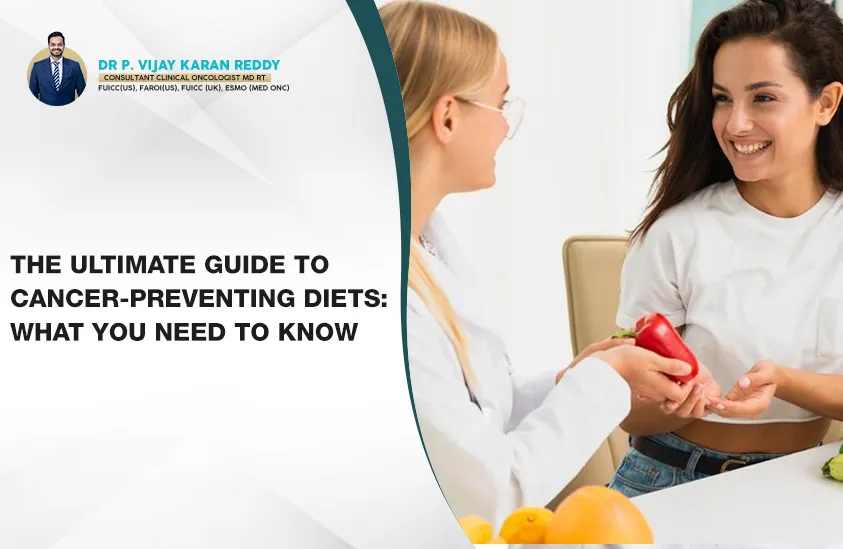In today's health-conscious world, understanding the pivotal role diet plays in preventing cancer is more crucial than ever. Through extensive research and scientific studies, we've identified key dietary strategies that can significantly reduce the risk of developing cancer. This comprehensive guide delves into the essentials of a cancer-preventing diet, offering actionable insights and detailed recommendations to empower you in making informed dietary choices.
Embracing Whole Foods for Holistic Health
The Power of Fruits and Vegetables
Incorporating a diverse range of fruits and vegetables into your daily diet is the cornerstone of cancer prevention. These natural powerhouses are rich in vitamins, minerals, antioxidants, and phytochemicals, which collectively combat oxidative stress and inflammation, two major contributors to cancer development.
Antioxidant-Rich Berries: Blueberries, strawberries, and raspberries are packed with antioxidants that protect cellular health.
Cruciferous Vegetables: Broccoli, cauliflower, and kale contain sulforaphane and indoles, known for their cancer-fighting properties.
Whole Grains: A Nutrient-Dense Staple
Whole grains, unlike their refined counterparts, retain all parts of the grain, ensuring a higher content of fiber, vitamins, and minerals. Regular consumption of whole grains like quinoa, oats, and brown rice has been linked to a lower risk of several cancers, notably colorectal cancer.
Prioritizing Plant-Based Proteins
Transitioning towards plant-based protein sources not only supports sustainable practices but also contributes to a healthier diet profile. Legumes, nuts, and seeds are excellent sources of protein, fiber, and essential nutrients, with the added benefit of being low in saturated fats.
Legumes: Lentils, chickpeas, and beans are not only high in protein but also in fiber, which aids in digestive health and reduces cancer risk.
Nuts and Seeds: Almonds, chia seeds, and flaxseeds are rich in omega-3 fatty acids, linked to reduced inflammation and a lower risk of cancer.
Minimizing Processed Foods and Red Meat
A critical aspect of a cancer-preventing diet is the reduction of processed foods and red meat intake. These foods are often high in harmful additives, preservatives, and saturated fats, which can contribute to cancer risk.
Processed Foods: Limiting processed meats, sugary snacks, and refined grains can drastically improve your diet's quality and reduce cancer risk.
Red Meat: Opting for leaner protein sources and reducing red meat consumption can decrease the risk of colorectal and other types of cancer.
The Role of Healthy Fats
Incorporating healthy fats into your diet is essential for maintaining cellular health and reducing inflammation. Focus on sources of monounsaturated and polyunsaturated fats, such as:
Olive Oil: A staple of the Mediterranean diet, known for its heart-healthy and cancer-preventive properties.
Avocados and Nuts: These foods are not only rich in healthy fats but also in fiber and various essential nutrients.
Hydration and Cancer Prevention
Staying well-hydrated is fundamental to overall health and plays a specific role in reducing cancer risk. Water aids in the elimination of toxins and ensures the proper functioning of all bodily systems.
Conclusion
Adopting a diet rich in whole foods, plant-based proteins, and healthy fats while minimizing processed foods and red meat intake is instrumental in preventing cancer, as advocated by Dr. Vijay Karan Reddy, among the Best Oncologists in Hyderabad at Arete Hospitals. By making these dietary choices, we not only reduce our cancer risk but also promote overall health and well-being. Remember, a cancer-preventing diet, as recommended by top Oncologist like Dr. Reddy, is not about restrictive eating but about making informed, balanced choices that celebrate the diversity and richness of whole, natural foods.


